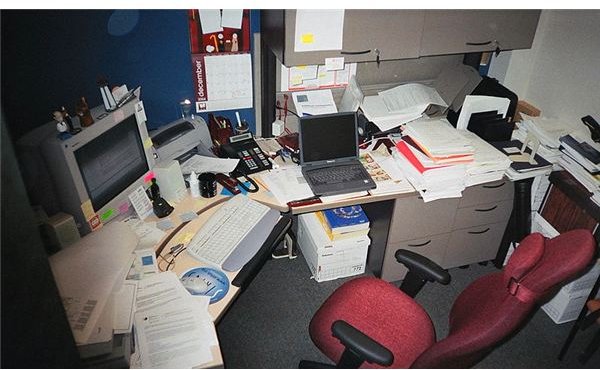Workplace Distractions: Key Strategies To Get the Most Out of Your Work Day

Unless you have a superhuman ability to focus on your work, you will encounter many distractions in the workplace as you go through your day. At first, these distractions can feel enjoyable and pleasant. After all, who doesn’t enjoy a break from work? If you give in to these distractions too often, it is easy to fall behind on your assignments and your stress levels will increase. Thankfully, there are a number of tools and strategies you can use to respond to the pressure of distractions in the workplace. If these strategies are not workable in your environment, you may have to consider more extreme measures such as asking to be relocated or experiment working in different places.
Digital Distractions
If your work involves using a computer in any capacity, there are many kinds of digital distractions that can hold you back. Even if you have a basic computer without Internet access, many office workers have wasted an embarrassing number of hours playing Minesweeper, Hearts, Solitaire and other free games typically included on computers. For those with Internet access, it can sometimes be hard to stay focused on work activities. For example, you might come to a website like Bright Hub to improve your Excel skills and then drift off to read some online news. Follow these tips to stay focused and limit your digital distractions:
-
Create a Reward System for Yourself: Work on your report for an hour and then read online news for five minutes. The advantage of this approach is that you still get to have some enjoyment while working through your responsibilities.
-
Unplug your Internet Connection: Unless your project requires Internet access (or network access), there is much to be gained from going offline for short periods. Even if your work involves a great deal of Internet research, you can still outline reports, proofread your writing, and perform analysis without Internet access. When you are disconnected, you don’t have to worry about responding to emails or other digital messages right away either.
-
Use Pen and Paper: Leaving your computer behind from time to time can be a great way to improve your productivity or break free from distractions. For added focus, consider working away from your desk - book an empty meeting room, take an empty cubicle or go to a local public library for an hour. Make sure to bring notes, background materials and set a few goals.
-
Use a Productivity Application: There are computer programs you can use that limit your computer to word processing (e.g. JDarkRoom) or monitoring tools (e.g. RescueTime) that you can use to augment your focus.
“Hell is Other People”: Coping with Social Distractions
Most workplaces involve dealing with other people in some capacity. While it certainly makes sense to stay on good terms with your colleagues, you still need to know how to handle social distractions. Keep in mind that most people are reasonable if you are upfront about your need to focus. Not everyone has the same workload or deadlines though, so others may not know you have urgent work to do unless you say so.
-
Wrap Up Conversations: When you need to conclude a workplace conversation and get focused, indicate this by saying something like, “It was good to catch up, but I have to get back to my analysis - it’s due in a few hours.”
-
Discourage Lengthy Personal Calls: If people in your office have a habit of making long personal calls during working hours, you may need to raise the matter with them. This is a delicate situation but if you say something like, “I feel it is hard for me to focus when there is a lot of background noise,” your colleagues may get the hint.
-
Book “Project Time” In Your Calendar: If your workplace uses a shared, digital calendar system like Outlook, you can limit some workplace distractions by blocking off time in your calendar to work on projects.
If you work from home on a regular basis, you should also think about setting “business hours” (e.g. 10-6), so that friends and family will know that you are unavailable at certain times. If you struggle to handle larger projects, consider learning some project management techniques to improve your productivity.
References
- Image Credit: Typical Busy Office, AlainV/Wikimedia Commons, Public Domain
- RescueTime, http://www.rescuetime.com/
- JDarkRoom, http://www.codealchemists.com/jdarkroom/